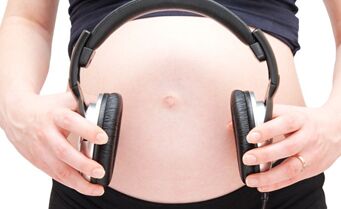怀孕时,肚子里的宝宝几乎所有的时间都在睡觉
|
Sleep is the single most effective thing you can do to reset the health of your brain and body. This is true for adults, teenagers and children alike. Yet, we do not start sleeping when we are born. We actually start sleeping many months before that. Often, through speech or song, expecting parents will thrill at their ability to elicit small kicks and movements from their in-utero child. Though you should never tell them this, the baby is most likely fast asleep. Prior to birth, a human infant will spend almost all of its time in a sleep-like state, much of which resembles a stage called rapid eye movement sleep, or REM sleep. The sleeping fetus is therefore unaware of its parents' performative machinations.
Any co-occurring arm flicks and leg bops that the mother feels from her baby are most likely to be the consequence of random bursts of brain activity that typify REM sleep. Adults do not-or at least should not-throw out similar nighttime kicks and movements, since they are held back by the body-paralyzing mechanism of REM sleep. But in utero, the immature fetus's brain has yet to construct the REM-sleep muscle-inhibiting system adults have in place. Other deep centres of the fetus brain have, however, already been glued in place, including those that generate sleep. As a result of this mismatch, the fetus brain still generates formidable movement commands during REM sleep, except there is no paralysis to hold them back. Without restraint, those activity signals are freely translated into frenetic body movements, felt by the mother as acrobatic kicks and featherweight punches. At this stage of in-utero development, most of the time is spent in sleep, split between REM sleep and deep sleep, also called non-REM sleep. It is only when the fetus enters the final trimester that the glimmers of real wakefulness emerge. Far less than you would probably imagine, though-just two to three hours of each day are spent awake in the womb. |









